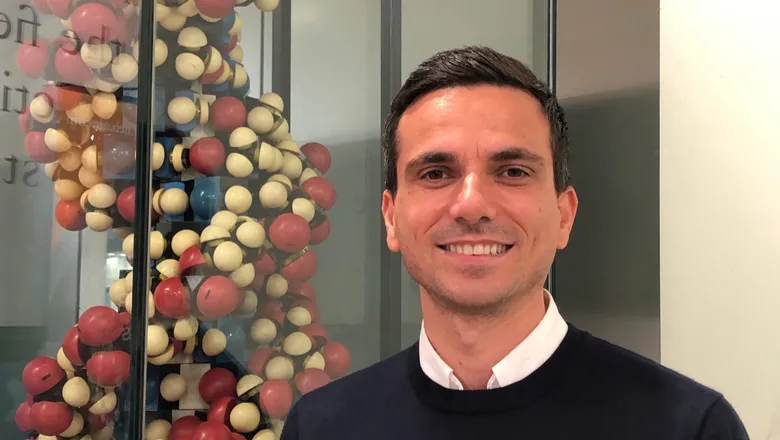IgE plays a central role in asthma as it mediates the allergic and inflammatory reactions within the airways of people with asthma. About two thirds of asthma individuals have allergy-related asthma, meaning they will directly benefit from the study. There is also growing evidence showing that IgE plays an important role in non-allergic asthma too. In this study, I hope to find ways of removing the source of this important contributor of asthma pathology, which would benefit all individuals with asthma.
Dr Faruk Ramadani, Randall Centre for Cell & Molecular Biophysics
17 October 2019
Dr Faruk Ramadani granted Career Development Award to investigate asthma treatments
Dr Faruk Ramadani has been awarded a Career Development Award by Asthma UK to investigate a potential new target in asthma, which could lead to new treatments.

Dr Faruk Ramadani, Randall Centre for Cell & Molecular Biophysics, has been given one of three awards for the project titled ‘Targeting IgE memory cells to treat asthma’.
Allergic responses are triggered when a type of antibody called immunoglobulin E (IgE) reacts to an allergen, e.g. pollen or dust, and activates the immune system. The IgE antibodies are produced by plasma cells. These cells can live for decades in the bone marrow of people with asthma and continuously produce allergen-specific IgE antibodies, which is called the IgE ‘memory response’. Therefore, a person may react to an allergen even after years of avoiding it, making the IgE memory cells a prime target for treatment.
The main objective of this study is to use existing drugs to switch off IgE production and understand how human IgE memory cells are created and survive by gene blocking and editing. This project will investigate the role of an enzyme, called PI3K, that may play a key role in the creation and long life of IgE memory cells and will investigate its role and the effects that stopping it will have.
The Career Development Awards from Asthma UK aim to support researchers at post-doctoral level who want to transition to independence. These awards are for up to £250,000 for up to 3 years full time or 5 years part time. The awards aim to support researchers in answering a single question or a small group of related questions about a specific aspect of asthma which has been highlighted as a priority research area.
